The Ultimate Guide to Water and Weight Loss
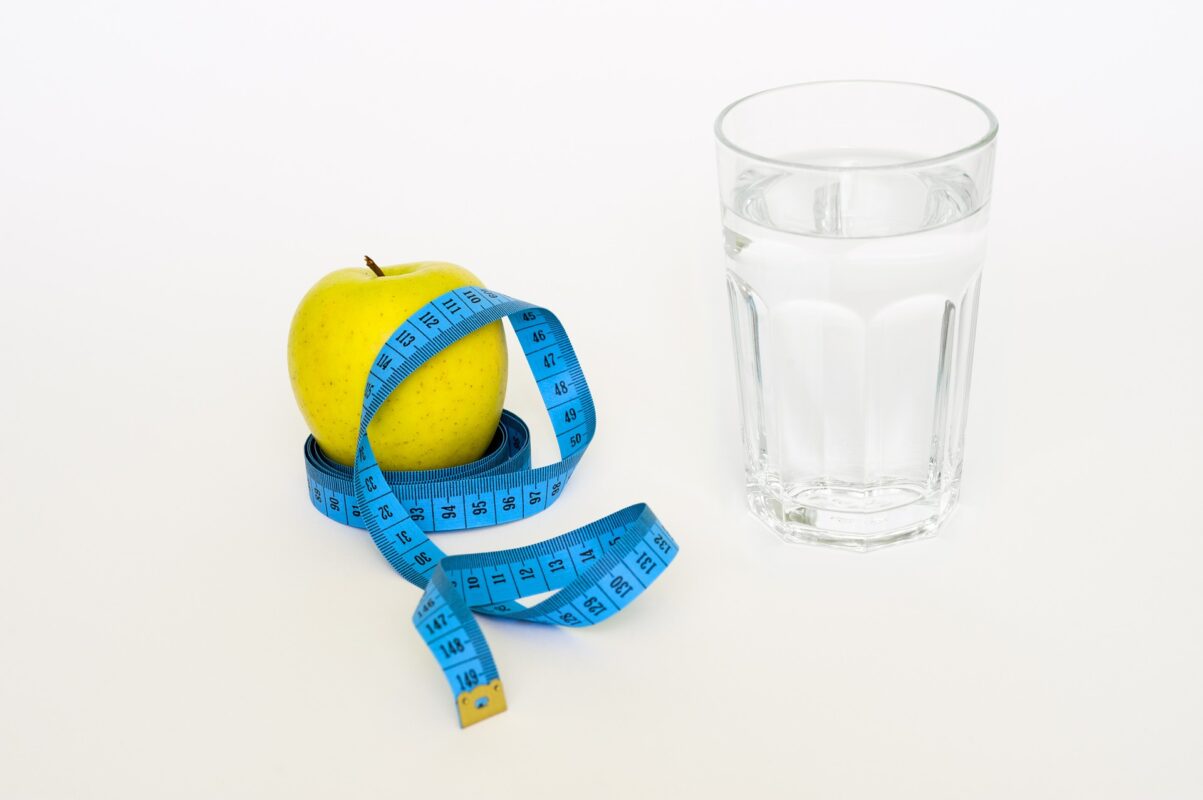
An Ultimate Guide to Water and Weight Loss needs some clarification. Are we talking about swimming, bathing in thermal pools, or after-workout beverage? This blog discusses how drinking more water affects weight loss. There have been a lot of studies on the subject. I want you to have the facts.
What questions do you have about Water and Weight Loss?
As you know, without water humans survive for, at most, 2–4 days. Water comprises about 60% of our body weight and is critical for life. Still, there are unanswered questions about what we should or shouldn’t drink. Are some beverages superior? How do these beverages affect our calorie intake? Do we even need to drink during a meal? Does the water temperature matter? So the main questions I have are 1) do alternatives to water at meals (i.e., no beverages, or various caloric and diet beverages) result in a difference in caloric intake, and 2) does choosing alternatives to water affect your weight? (Should I only drink water?)
Caloric Beverages Do Not Make Us Feel Full Faster
First, let’s be clear, there is consensus among studies that we do not reduce food intake when we drink caloric beverages. This means that when I eat a meal with 500 calories if I drink a beverage with 200 calories, I’m not going to feel full faster. My total caloric intake for the meal is 700 calories (or more, read on). But, if I drink water or a non-caloric beverage, my calorie intake for the meal remains at 500. So, an easy way to cut calories is always to drink water or a non-calorie substitute.
Not All Sweetened Drinks are the Same
There are a lot of studies on what’s call SCB’s or Sweetened Caloric Beverages (these include sodas, milk, fruit juices, and alcoholic drinks). One study review said “We examined the association between soft drink consumption and nutrition and health outcomes. We found clear associations of soft drink intake with increased energy (calorie) intake and body weight. Soft drink intake was also associated with lower milk consumption (low calcium, and other nutrients) and with an increased risk of several medical problems (e.g., diabetes and heart disease).” This means, soda or soft drinks are out.
Milk has nutrients and calcium (for strong bones) so the calories should be counted, and it’s worth it to avoid osteoporosis. Fruit drinks also include nutrients. However, you must decide if the calorie intake is worth the extra calories. Let’s say you are logging calories (which will make weight loss more successful). You have 200 calories left for the day. So, do you eat some fruit that will make you feel fuller (fiber) or drink a glass of pure unsweetened orange juice with dinner? The choice is yours. Either way, you count the calories.
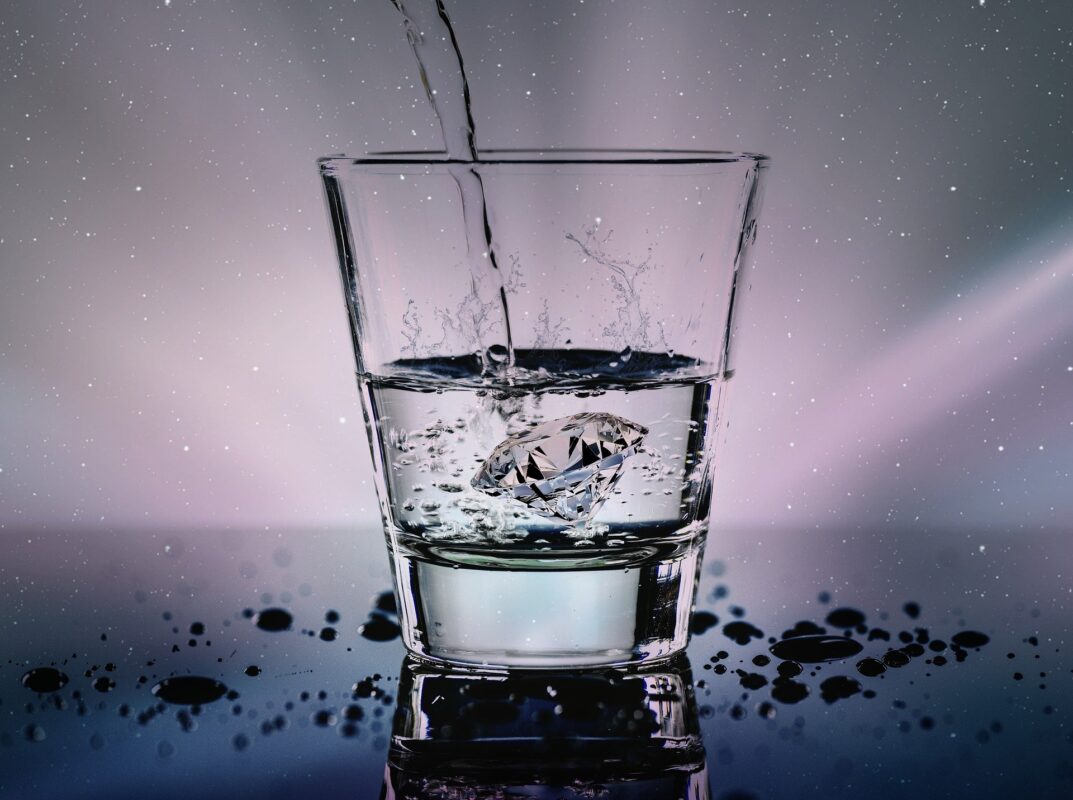
But this blog is about water. Another review of the research said, “One of the most consistent sets of findings comes from comparing adults drinking sugar-sweetened beverages (SCB’s) vs. water before a single meal. The total caloric intake of the meal was increased 7.8% when SCBs were consumed. So, if you drink sugar before a meal, you eat almost 10% more. Studies comparing non-calorie sweeteners (Stevia, Equal, etc.) with water found no impact on calorie increase among adults.” Milk findings were inconsistent. Milk intake caused some increase in calories but it was not consistent. If you had water, or water with non-calorie sweetener, you would eat until full and that’s it. Water does seem to help you eat less overall when compared to a beverage with sugar.
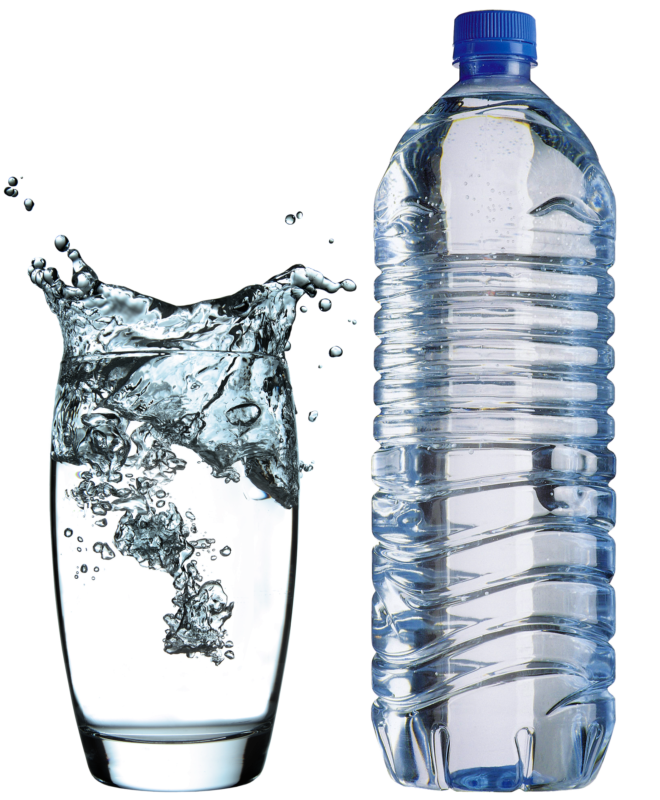
What about water before eating? Will it reduce your calories? “The simple answer is yes”, said Brenda Davy, associate professor in the Department of Human Nutrition, Foods and Exercise in the College of Agriculture and Life Sciences at Virginia Tech, who was the senior author of the study. “We found in earlier studies that middle-aged and older people who drank two cups of water right before eating a meal ate between 75 and 90 fewer calories during that meal. In a more recent study, we found that over the course of 12 weeks, dieters who drank water before meals, three times per day, lost about 5 pounds more than dieters who did not increase their water intake.”
This was supported by a study in which women drank 2 glasses of water with a meal and another group drank nothing. The women who drank the water became full faster than the other group who drank nothing. This also showed that the water drinkers consistently took in fewer calories. However, the study also indicated that after the meal, the feeling of fullness did not linger in either group. This means, drinking water during a meal, will not keep you from feeling hunger later. You must keep drinking non-sweetened beverages to feel full.
Ice Water is Cool
As an additional note, there was evidence from a dietician at Arkansas’ UAMS Medical Center. She said drinking ice cold water will burn about 8 additional calories. The body needs to warm up the water to 98.6, so it takes about the same amount of energy as eating a small pickle. However, she did point out,”it’s better to focus on making better choices like eating fruit instead of a donut for dessert.”
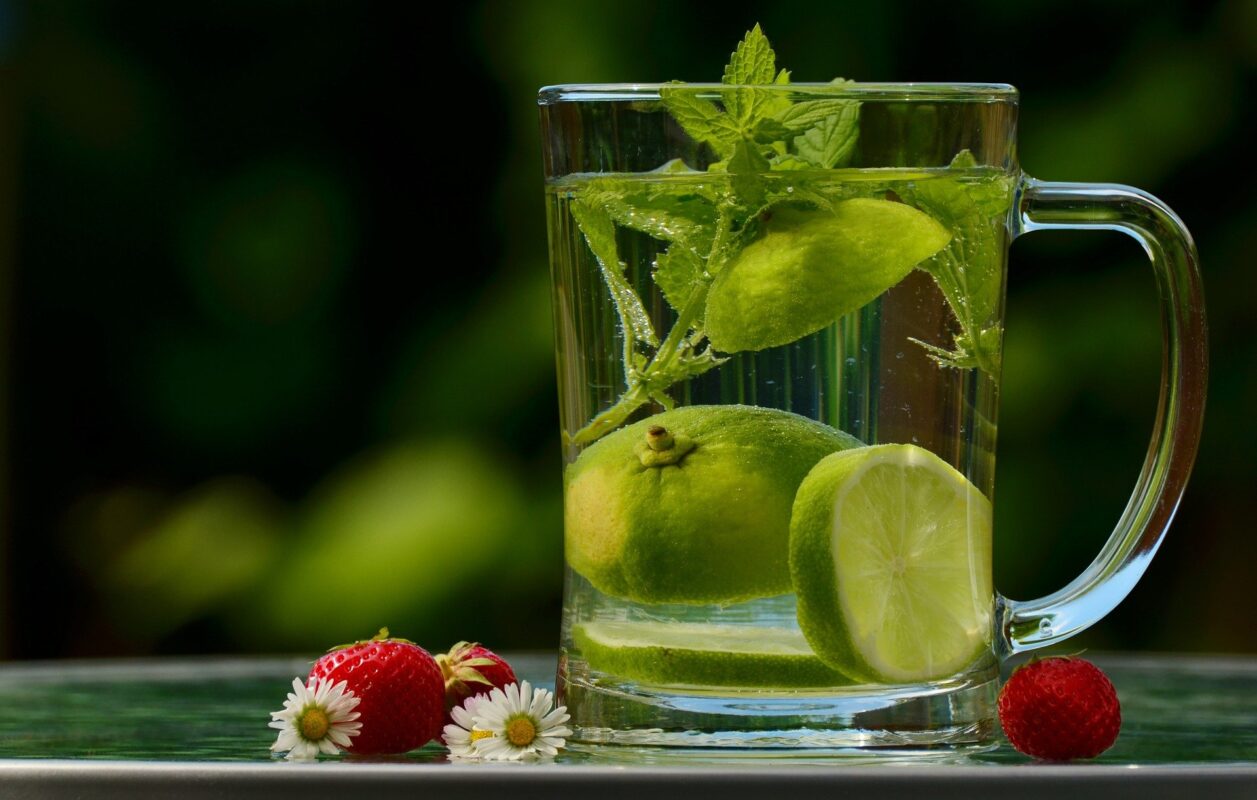
Lemon (or lime) and weight loss go hand in hand. Just as plain water does, lemon water makes you feel full faster. Plus, lemon water, and weight loss, have the added bonus of vitamin C and the other nutrients of the lemon. It also is shown to increase your metabolism, the rate you burn fat. If you hate the taste of your water, try some lemon in it. Many people use lemon and ginger water for weight loss, others use water and apple cider vinegar or water and cinnamon.
Water Also Helps Your Digestion
The Journal of Obesity & Weight Loss Therapy showed that drinking sufficient water flushes out your digestive tract. This helps to carry away the fat you lose during calorie restriction and prevents bloating. So, your body breaks down your fat reserves, but it needs more water to carry out this process. Any excess fat that you eat during a meal, can also be flushed out during digestion. This is why water is important before the meal.
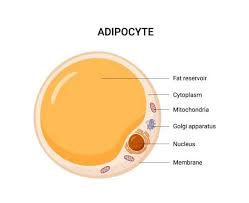
To discuss water and weight loss, we need to look at how fat is taken away from the body. Dr. Meerman and Prof. Brown wrote a complicated study that explains the process. “When people lose weight, they are trying to metabolize (burn) the triglycerides (fat) stored in their adipocytes (fat cells). There are 3 fatty acids in the body: oleate (C18H34O2), palmitate (C16H32O2), and linoleate (C18H32O2),1 2” The elements (in parenthesis) show that fat is made up of H20 (water) and carbon dioxide. So, to get rid of fat, you need to convince your body that it will not run out of water. Your body is essentially storing and hanging on to the fat (full of water). So, if you drink water regularly, the body is more willing to give up the fat.
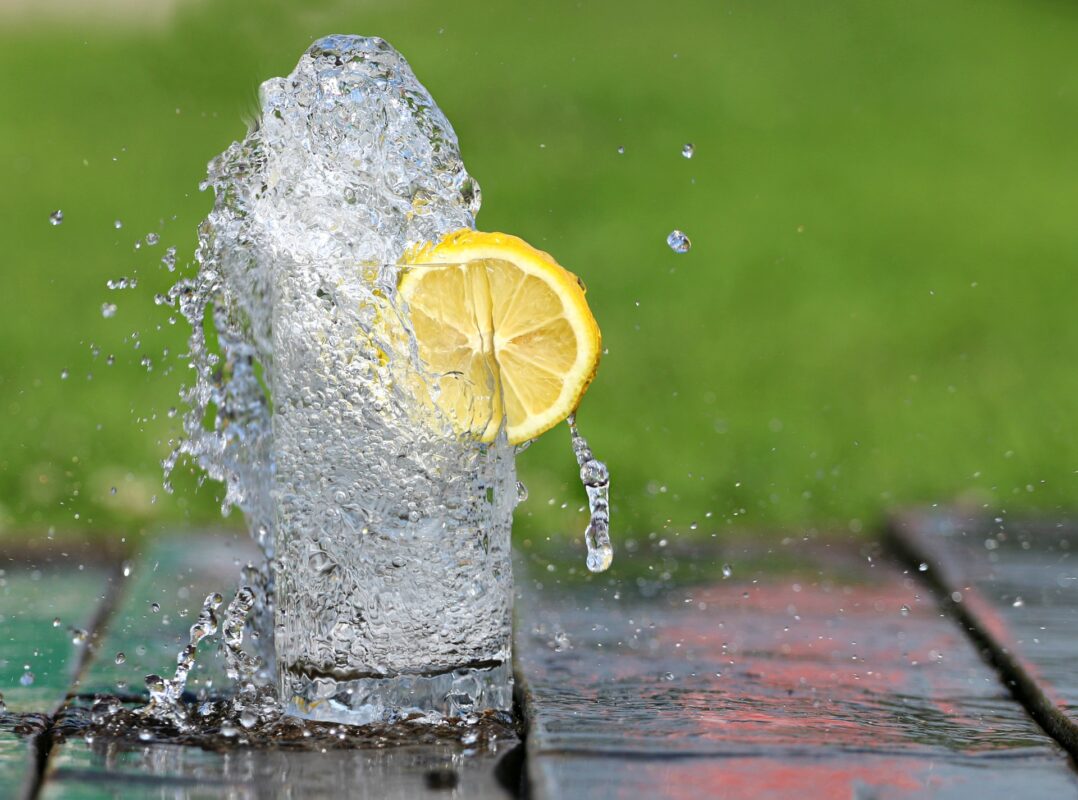
In the studies I read, water was key to weight loss. As a recap:
- You can have water (plain, with fruit or herbs), coffee, any kind of tea, or a non-caloric sweetened beverage. They are all the same as long as you don’t add calories in the form of sugar or milk.
- Drinking water or non-caloric drinks makes you eat less overall. You take in less calories, so you lose more weight.
- Ice water burns a few more calories. So add the cubes when it’s hot out.
- As an added bonus drinking a couple of glasses of water before a meal makes your feel full faster. This can add up to 5 lbs. extra weight loss over a few weeks.
- Your body is programmed to hold onto fat because the body is made up of 60% water and a lot of the water is in the fat. Drink more water so your body can relax and let go of the fat.
Cheers! Here’s to Water!
Drink up my friends but make sure to leave out the sugar. Water is the best. I hope you found this blog helpful. Please comment to let me know. “Will you start drinking 2 glasses of water before meals?”